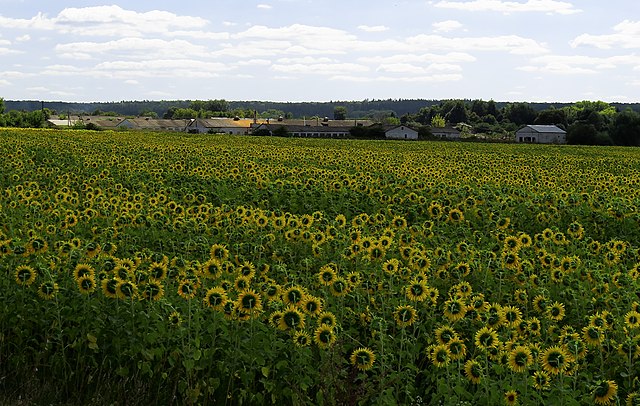Ukraine rues Poland’s, Hungary’s and Slovakia’s extended agricultural imports ban and has sued them at the World Trade Organization (WTO).
Kyiv’s Trade Representative, Taras Kachka, first briefed journalists on this decision shortly after the three regional neighbors defied the European Commission’s end to the 6-month EU-wide ban on Monday.
Beforehand, Kuchka had told Politico that he thought Hungary’s rejection “a very bold movement against both of us from Budapest.”
The ‘both of us’ of the statement refers to both the European Commission and Ukraine itself.
Kuchka had said on Monday that if the trio wouldn’t have rallied by Friday, September 22, 2023, Kyiv would litigate.
What are Ukraine’s fears?
This decision is dire as it comes at a grave time for Ukraine’s agricultural export logistics. In July, Russia decamped from the Black Sea grain agreement, which had allowed Kyiv to ship grains by sea aggression-free.
With the rejection of agricultural imports from Ukraine by neighbors, Kyiv has to resort to train transit to Western Europe.
How did the ban on Agricultural Imports form Ukraine begin?
In May, 2023, the EU enforced a temporary ban on agricultural imports from Ukraine to prevent influx in member countries.
Poland, however, had begun a blockade beforehand, and only opened transit routes for Ukrainian grain convoys in mid-April.
That May, Ukraine announced that it would produce the biggest wheat crop in 12 years across 285,000 hectares.
Wheat was one of the banned imports into Europe at the time. Other grains and oilseeds under the import moratorium included, maize, sunflower seed and canola.
What is the current take by Hungary and Poland?
The fact that Poland has an upcoming poll in mid-October gives the ban a new dimension. The government seeks to empathize with local farmers by ‘protecting them against agricultural imports from Ukraine. Even after the lawsuit, Poland is adamant that the ban still holds.
Hungary was even more steadfast in its ban extension. Unlike Poland’s extra ban on grain products such as flour, Budapest recently added 25 more products on its list.
What is Ukraine’s position?
Ukraine says that if Poland allows imports, it will ensure that only the exact quota reaches Warsaw.
In short, if the the three defiant countries reconsider the European Commission’s decision, Kyiv is keen to ensure that there will be no surplus exports to them as a conciliatory measure.
Otherwise, lodging a complaint to WTO, as has happened, remains Ukraine’s final stop.
